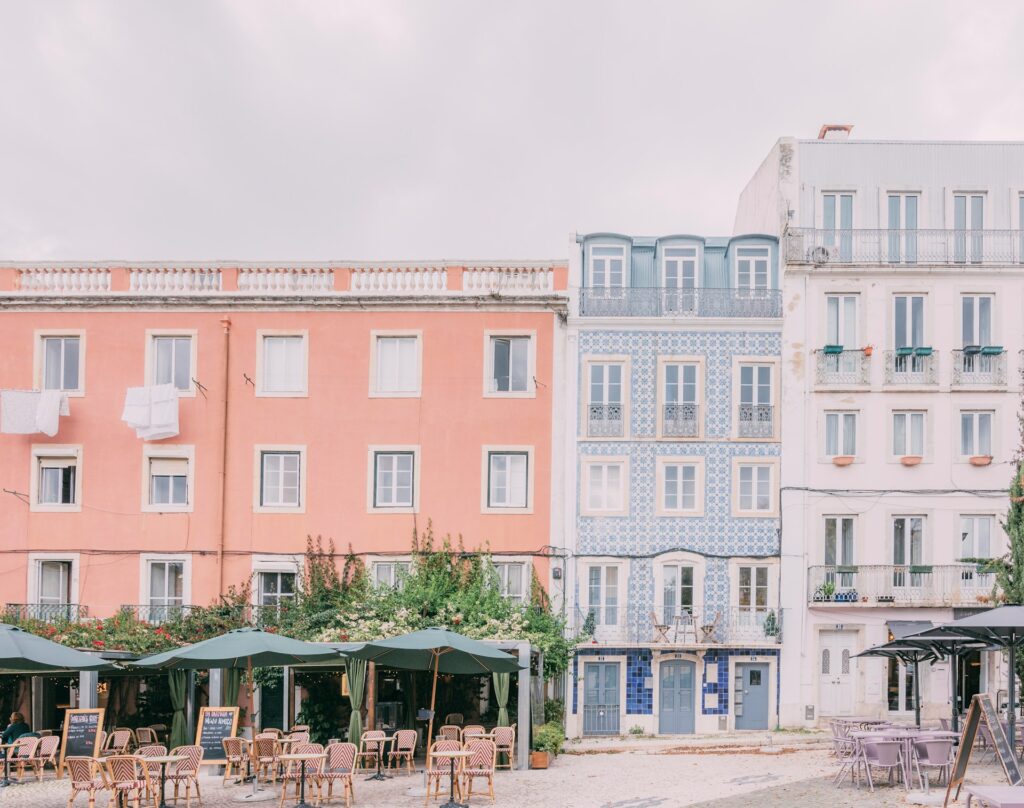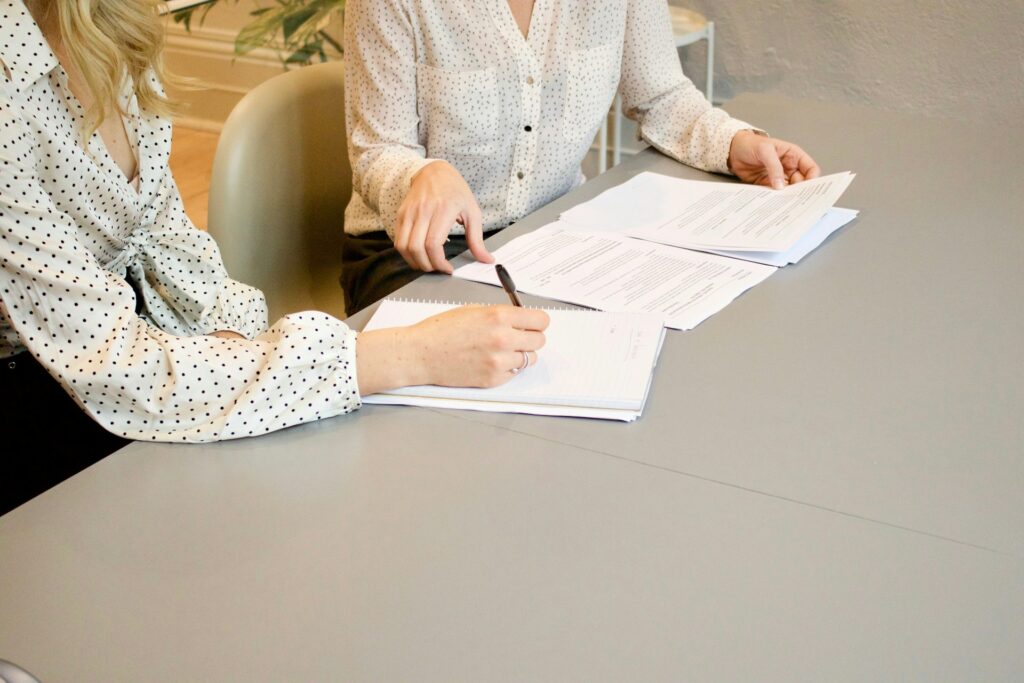Are you thinking about Property Deed in Portugal?
Then you certainly must have come across the term “deed of purchase and sale.” A property deed is the final step that comes to the purchase of property and is a legal document that finalizes the transfer of property from the seller to the buyer.
Whether you are a first-time buyer or an experiences buyer, having an understanding of the process of a property deed makes the process go smoothly.
In this guide, we will discuss what a property deed is, what to expect, and the documents needed so that you can confidently make your dream Portugal property a reality.
What is a Property Deed?
Also known as an “Escritura Pública de Compra e Venda,” the property deed is a legally binding document that makes the buying property Portugal official. It is usually signs on the day mentions on the preliminary contract in the presence of a notary or lawyer who has permission to authorize such transactions.
Here are the key aspects of a property deed in Portugal:
- Location;
- Parties involves;
- Documentation;
- Reading of the Deed;
- Payment;
- Signatures;

Factors of a Property Deed
Knowing what to expect before you buy a property in Portugal is necessary. Below are all the factors you need to consider:
1. Location
The signing of the property deed is usually overseen by a certify notary in the notary’s office itself. Notaries in Portugal are legal professionals who are real estate transaction experts and ensure that the process takes place fairly and legally. They are an unbiases third party and so review all documentation, the property’s fiscal and legal status, and see if the transaction complies with Portuguese law.
While most signings are held in the notary’s office, it isn’t always the case. A mutually convenient location can also select for the signing. Moreover, the seller can choose to have their legal counsel present on the day of signing to ensure their rights are protects. These arrangements are making beforehand to avoid any last-minute disturbance.
2. Parties involved
When you buy a property in Portugal, there are many people involves during this property deed signing and transaction process to ensure that the signing goes without a hitch.
- The Buyer: The buyer is the one who is buying property Portugal and is making a huge financial commitment.
- The Seller: The seller is the individual who is giving up ownership of the property. They must provide a clear title to the property and complete any requirements that are states in the sale agreement.
- The Notary or Lawyer: the impartial legal lawyer who plays the role of seeing that a fair and legal transaction takes place between the buyer and seller.
- Power of Attorney: In case either the buyer or seller cannot be present in person for the property deed signing, they can grant a legal representative a power of attorney to there on their behalf. This process requires legal documentation beforehand.
3. Reading the Property Deed
In the process of property deed signing, the notary plays a dual role in overseeing the signing as well as guiding the buyer and seller to understand the implications of the contents of the property deed.
- Reading the Deed Aloud: To help both parties comprehend the property deed contents, it is read aloud. It is done so that all terms and conditions are understood by the involved individuals.
- Language Assistance: The property deeds are a legal document and so are written in Portuguese. This can be difficult for those not proficient in the language to understand the content. Therefore, the buyer can hire a lawyer who knows both languages or get a professional translator to assist with the property deed signing.
- Acknowledgment and Agreement: The terms and conditions stated on the property should be agreed upon and acknowledged by both the buyer and seller. This is not only a formality but rather also implies that the document has the consent of all parties involvs.
4. Signatures
The signing of the property deed is of great significance as it legally binds both the seller and the buyer to the terms of the contract.
- Legal Formality: Once both parties, in the presence of a notary lawyer, have understand and agrees to the terms and conditions, the property deed can signs.
- Notary or Lawyer’s Role: The notary lawyer plays an important role in the signing as they ensure that the procedure is carries out smoothly and according to legal methods.
- Distribution of Copies: After the signing of the property deed, copies of the deed are provided to both the buyer and seller. This serves as proof of transaction and ownership of property.
- Notary’s Official Record: The original signed deed is then securely stored and registered with the Land Registry and the Tax Authority to confirm the change in property ownership.
5. Payment
After the property deed is signing, the buyer is now obligates to pay the seller the remaining purchase price for the property.
- Paying the Remaining Purchase Price: The remaining purchase is the outstanding balance that the buyer owes the seller. This amount is states in the purchase agreement and excludes any initial deposits or prepayments making throughout the transaction.
- Exchange of Keys: Along with the payment of the remaining amount, the seller hands over the keys to the property to the buyer.
6. Registration of the Property Deed
The registration of the deed is a pivotal step in the property purchase process, as it holds the key to officially transferring ownership from the seller to the buyer.
- Responsibility of the Notary or Lawyer: Once the deed is signs, it becomes the responsibility of the notary or lawyer to register the property deed.
- Land Registry: The property deed is first sending to the land registry, where the details of the transaction are records in an official public database.
- Tax Authority: The property deed is also submitts to the Tax Authority, which is associates with any tax-related matters.
- Proof of Ownership Transfer: The process of registration is the evidence of ownership transfer from the seller to the buyer.

Documentation for Signing a Property Deed
When you buy a property in Portugal, the importance of having the correct and complete documents is crucial. Therefore, before you start the process, you should have all the documents, which include:
i. Selling real estate documents
- Identification Card: The seller should a valid form of identification, which can their passport, ID card, or another form of verification.
- NIF Number: The fiscal identification number is a fundamental requirement for any financial transaction in Portugal.
- Property Registration Certificate: Also calls Certidão Permanent, it is an important document needs to buy a property in Portugal.
- Legal Description of the Property: This document includes the information about the property being sell in detail. It includes information such as the property’s fiscal identification number (NIF), location, area, use classification, and any existing mortgages or charges.
ii. Real estate property documents
- Permission to Use: The “Licença de Utilização” is a document that certifies that the property complies with all the legal and safety requirements that are needed for it to be occupied.
- Housing Technical Sheet: This document provides in-depth information on the property, such as its construction features, materials uses, and energy performance details.
- Energy Performance Certificate: A document evaluating the energy performance of a document and its impact on the environment. It also shows the energy rating given to the property, which ranges from A+ (most efficient) to F (least efficient).
iii. Buying real estate documents
- Identification Card: Depending on the immigration status of the buyer, an identification method should prepares. This can a passport, residence card, or European ID card.
- NIF Number: The NIF, or fiscal identification number, is a requirement for any financial transaction, including when you buy a property in Portugal.
- Banker’s Draft for Remaining Purchase Price: This is a document that confirms the secure form of payment issued by a bank to pay the remaining balance of the property purchase.
- Receipt for Transfer Tax (IMT) and Stamp Duty (IS) Payment: The buyer should provide proof that they have paid all their taxes before they buy a property in Portugal.
- Payment for Notary Fees: Buyers commonly used to complete notary payments through cheques; however, it is now more common to make these payments through ATMs and cards.

Find Your Dream Property with us
Portugal Investment Properties is your gateway to smart real estate investments in Portugal, offering savvy investors access to an exclusive collection of carefully curated properties.
Whether you’re searching for your dream home or a prime investment opportunity in Portugal’s prestigious market, we provide more than just listings – experience a personalized journey tailored to your aspirations.
Begin your journey to discover your perfect Portuguese retreat. Contact us today!
Looking to Invest in Portugal?
Explore our newest listings below!
Frequently Asked Questions About Understanding Property Deed Signing in Portugal
What happens during the signing of the property deed?
During the signing, the terms of the property deed are read out loud by the notary lawyer, which then needs to be acknowledges and agreed upon by both parties after the content and implications are understand.
Do I need a lawyer when signing a deed in Portugal?
You do not necessarily need legal representation, but it is better to have a notary or lawyer oversee the process so your rights are protects and no legal trouble arises.
Can a foreigner buy a house in Portugal?
Foreigners certainly can buy a property in Portugal. There are no restrictions on non-residents purchasing residential or commercial real estate.
What is a title deed called in Portugal?
In Portugal, the title deed is calling the Deed of Purchase and Sale (Escritura de Compra e Venda).
What is the process of buying property Portugal?
The process includes finding a property, signing a preliminary contract, arranging a source of finance, and then finalizing the sale with a notary by signing the property deed.
Can I buy a house in Portugal and live there permanently?
Yes, you can buy a property in Portugal and obtain residency, which will then allow you to live there permanently if you want.
What documents are required to sign a property deed in Portugal?
You’ll need your passport or ID, NIF number, proof of payment of the property, and any financing documents (if applicable). The seller must also provide proof of property ownership and a certificate of land registration.
Who is responsible for paying the taxes and fees during the deed signing?
The buyer typically covers the IMT (Property Transfer Tax), stamp duty, and notary fees. The seller is responsible for any capital gains tax on their side.
Do I need to be physically present to sign the deed in Portugal?
No, if you cannot attend in person, you can grant power of attorney to a legal representative who can act on your behalf during the signing.
Can I review the deed before signing it?
Yes, the notary will provide a copy of the deed before the signing. It’s strongly recommended to have it reviewed by a lawyer to ensure all terms and conditions are correct.
Is the sale final once the deed is signed?
Yes, once the property deed is signed and registered with the Land Registry Office, ownership is officially transferred to the buyer, and the sale is legally binding.
